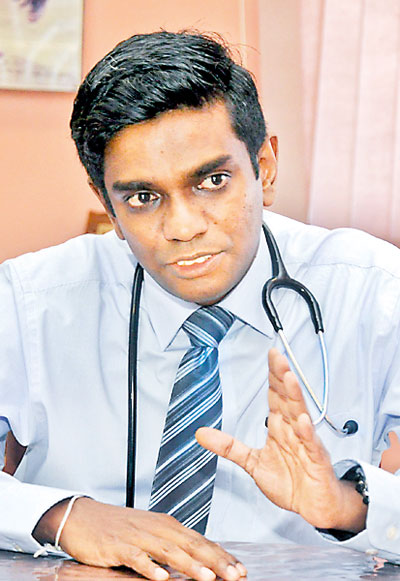News
Sri Lanka Cancer Research Group set up to do more country-specific studies
The Sri Lanka Cancer Research Group has been formed to conduct in-depth studies on cancer in the country.
Lamenting that in Sri Lanka minimal research has been conducted on outcomes of cancer treatment, Consultant Paediatric & Adolescent Oncologist Dr. Sanjeeva Gunasekera, who is the Convener of the group, says that up to now the country has been following western protocols in tackling cancer.

Dr. Sanjeeva Gunasekera
In Sri Lanka, there are about 25,000 new cases of cancer among adults per year, while there are 750 new cases per year among children and adolescents, according to him.
“The Cancer Research Group hopes to have solid evidence-based findings, so that we can adapt or change these western protocols to suit our own needs,” says Dr. Gunasekera, adding that currently there is only anecdotal evidence.
The group is set to provide better coordination and logistical support for local cancer research, so that Sri Lanka will have a baseline to work on, the Sunday Times learns.
This is also to allay speculation and fears among the people, says Dr. Gunasekera, citing the example of people being reluctant to take “the blue drug” even though it was good for a particular cancer, due to rumours that it was toxic. “If we have scientific studies on the outcomes of medications which are country-specific, people will accept them.”
The setting up of such a cancer research group was also necessitated because individual clinicians found it difficult to carry out studies due to time and resource constraints. The group can have a common pool which would be more cost-effective, he added.
Meanwhile, the Sunday Times understands that the worldwide trend is to set up a few centres of excellence for cancer treatment. In the United Kingdom, which is much bigger than Sri Lanka, there are only about eight centres of excellence spread across the country to treat childhood cancer, it is learnt.
Then expertise and resources could be concentrated at those centres, with cancer patients being referred to them from all over the country.
Another aspect is that when treating childhood cancers, more staff would also be needed, as the little patients need more attention from the nurses and other facilities such as play therapy etc.
“Research is also needed to assess whether infection control and proper nutrition would bring about better outcomes in cancer patients. If studies prove that they do, as we believe now, then there could be strong awareness campaigns among the public about hand-washing protocols and that hospitals need to keep high-risk cancer patients in isolation to prevent them from catching a fatal infection,” Dr. Gunasekera added.


